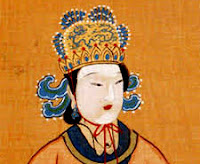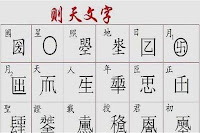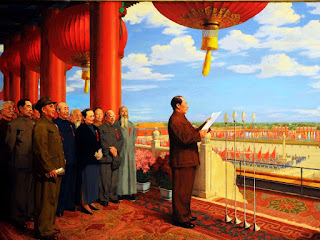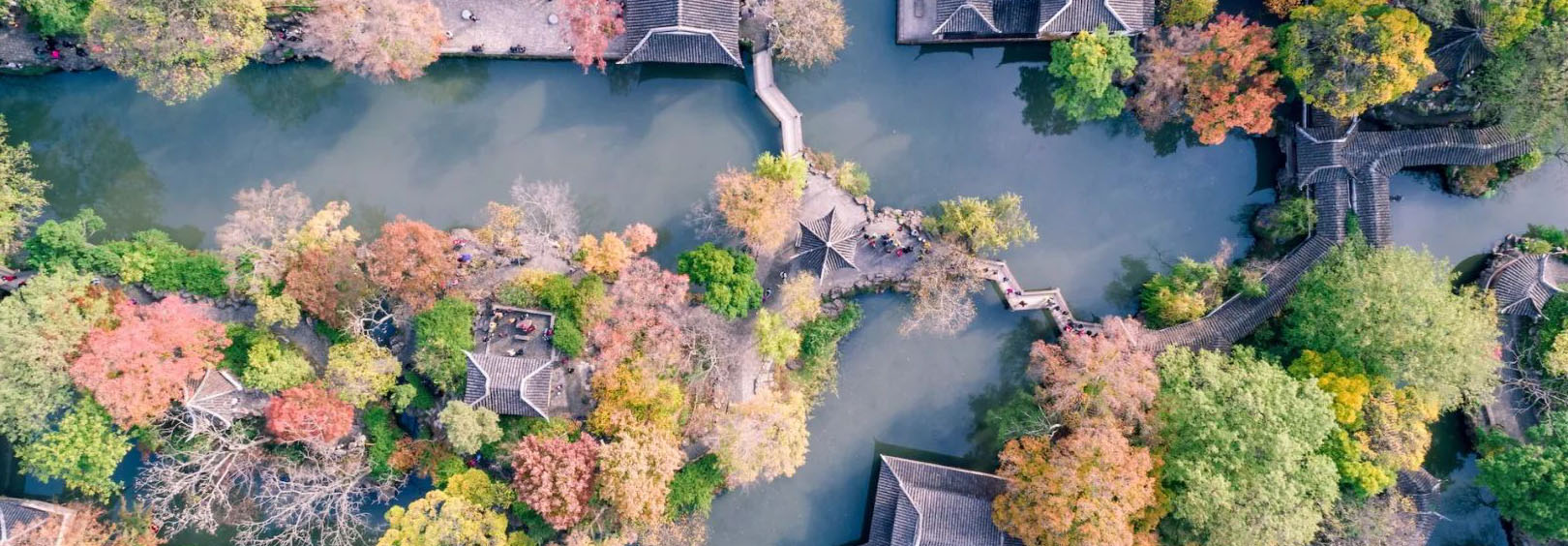Wu Zetian - A Female Hero in Chinese History
Wu Zetian (624 - 705) is an outstanding politician in the Tang Dynasty, the founding monarch of Wuzhou age (690 - 705), the only orthodox female empress in Chinese history. She was an extraordinary woman, talented, intelligent, and ruthless in the ruling. She rose step by step from a nameless person in the royal court to an intimidating ruler and grabbed the Li family's power. Some people may judge here, but what we can’t deny is that Wu Zetian was a female hero who dared to challenge the patrilineal society and proved to be a brilliant empress.
Quick Facts about Wu Zetian
Wu Zetian is the only legitimatized Empress in Chinese history.
 |
| Wu Zetian |
Wu Zetian established her dynasty - the Zhou dynasty.
Wu Zetian came to the throne when she was 67, making her the oldest person ever be crowned.
Wu Zetian was one of the longest-lived monarchs (82 years old) in Chinese history.
Wu Zetian had two husbands, Tang Gaozong Li Zhi and his father, Tang Taizong Li Shimin.
Wu Zetian deposed her son twice to be the actual ruler.
Early Life
Wu Zetian, born in Lizhou (today’s Guangyuan, Sichuan), was the second daughter of Wu Shihuo, one of the founding ministers of the Tang Dynasty (618 - 907). Her mother
 |
| Tang Gaozong |
When Wu Zetian was only 14 (in 637), she was invited to court and became one of the thousand wives of Emperor Li Shimin. She was admired for her wisdom and intelligence, but the old emperor never cosseted her. However, Wu Zetian became known to the crown prince Li Zhi during the late few years of Li Shimin. In 649, Emperor Li Shimin died, and Wu Zetian, together with other nonparous concubines, was sent to Ganye Temple to be a bun. However, her secret relationship with the newly crowned emperor Li Zhi never stopped.
Rise to Power
 |
| Wu Zetian |
On the anniversary of the death of Li Shimin, Emperor Li Zhi came to Ganye Temple to offer sacrifices, and he met Wu Zetian again. The old affection rose again in their hearts. In May 651, Li Zhi officially brought Wu Zetian back to court, and she was already pregnant. Her first child, a son named Li Hong, was born shortly after she was back. In the following years, Wu Zetian made good use of her charm to consolidate her position in the emperor’s heart (Li Zhi had many wives, two of the most powerful are Empress Wang and Consort Xiao) and she did successfully gained the undivided love from the emperor.
In 654, Wu Zetian gave birth to her second child, a princess. According to historical records, when the princess was about one month old, Empress Wang paid a visit. When the Empress left, Wu Zetian choked her baby to death and covered the baby with a blanket. Then, Emperor Li Zhi came to visit his little daughter, only to find her died. Wu Zetian framed Empress Wang to be the murderer of her daughter. The Emperor was furious, and he thought of abolishing Empress Wang and making Wu
 |
| Ming Tang |
Later, a small minister supported the idea of making Wu Zetian the Empress, which was much appreciated by the emperor and Wu Zetian. Many mid-level ministers saw the opportunity and began to switch side to Wu Zetian. On Oct.20, 655, Wu Zetian was officially made the Empress and her competitors (former Empress Wang and Consort Xiao) were deposed. A few years later, the powerful ministers who opposed Wu Zetian were also dismissed.
Since 660, Emperor Li Zhi began to suffer from severe headaches. Sometimes it was so bad that he couldn’t even deal with the state affairs. Therefore, Wu Zetian started to help the emperor. She dealt with state affairs beautifully. She was smart, decisive, and domineering, which induced fear from ministers. The prime minister Shangguan Yi
 |
| Mingtang by Wu Zetian |
In 675, the emperor was too ill to handle the state matters. He planned to make Wu Zetian a regent, which was objected by ministers. He had no choice but to appoint the eldest son of Wu Zetian, Li Xian, as the crown prince. Five years later, Li Xian (贤) was deposed for tempting to rebel against his father. The third son of Wu Zetian, Li Xian (显), was made the crown prince help the emperor deal with the state matters. In 683, Li Xian (显) ascended the throne, and Wu Zetian became the Empress Dowager.
Seize the Throne
In 684, the new Emperor Li Xian wanted to appoint his father-in-law Wei Xuanzhen the
 |
| Shangyang Palace |
 |
| Tian Tang |
On September 9th, 690, Wu Zetian officially proclaimed herself the Divine Empress and established the Zhou dynasty. She was 67 years old now. Two years after her reign, Wu Zetian sent tens of thousands of troops to fight against Tubo, and as a result, four important cities were included in the Tang territory. Wu Zetian also bestowed her Wu family members and kinsmen lords and officials. The contradiction between family Wu and family Li was intensified, and Wu Zetian struggled to decide her successor.
On the one hand, if she chose one of her nephews to be the next emperor, Wu Zetian herself wouldn’t be enshrined in the royal temple (after all, she was only an aunt). But her Wuzhou regime would be safe. On the other hand, if she chose one of her sons to
 |
| Tiantang |
Late Life and Abdication
With the crown prince reappointed, Wu Zetian had nothing to worry about. Besides, she became old and unable to perform well as she used to be. Thus, her focus shifted to entertainment, building palaces, and monasteries. She had many gigolos; two were particularly favored, Zhang Yizhi and his brother Zhang Changzong. They were so pampered that ministers and officials had to please them to get things done. Wu
 |
| Wu Zetian Court |
Achievements
Political Achievements
Broke the System of Hereditary Family, Supported Commoners, and Developed Imperial Examinations
After being made the Empress, Wu Zetian helped Emperor Li Zhi drive the old
 |
| Longmen Statue |
Rectified the Administration, Punished the Corrupted and Promoted the Talented
Wu Zetian inherited the system of administration rectification from the previous rulers and continued to punish the corrupt officials. She also sent special officials to assess the work of officials in towns. Once an officer was found out being corrupted, he would be punished no matter how powerful he was. Meanwhile, those who were talented and honest were rewarded and much promoted.
 |
| Characters Created by Wu |
Wu Zetian had a deep understanding of the importance of taking advice from subordinates. She encouraged ministers and officials to be honest and advise frankly. Even if some of the advice were a little harsh, Wu Zetian tolerated them. It is her generosity that made it an ethos to speak up in court. Therefore, her court was relatively just.
Economic Achievements
 |
| Stele Without Words |
counties. Besides, the handicraft industry and commerce also developed well. However, with the breaking of the equal-field system, tons of farmers began to flee from their hometown, which resulted in a loss to the taxation. In addition, Wu Zetian venerated Buddhism; she built many grand temples and palaces, which imposed a high burden on people.
Cultural Achievements
Wu Zetian ordered her literary courtiers to compile “Yao Lan (General Review)," “Zi Hai (Sea of Characters)," “Yue Shu Yao Lu (Selections from Music Books)," etc. Of them, “Zi Hai” collected all the characters invented by Wu Zetian. Unfortunately, the book was lost. “Yue Shu Yao Lu” was a music book of great historical and academic values. The whole book has ten chapters; only three of them have remained.
Military Achievements
It’s not so much of an achievement in terms of military affairs. It’s rather a failure.
 |
| Wuzhou Territory |
Meanwhile, the collapse of the equal-field system made people flee from their lands. Therefore, the government couldn’t raise a large army as before, resulting in a rather weak military force. With Tujue grew powerful, part of Anbei Protectorate was infringed, and Anxi Protectorate was under constant assault from the Tubo dynasty. Although Wu Zetian managed to retake Anxi Protectorate, Anbei Protectorate was lost.
Evaluation
There is no unanimous evaluation of Wu Zetian. In the early stages of the Tang Dynasty, people had position views about her. It’s probably because all the emperors were her lineal descendants, and the orthodox Confucian concepts were not dominant. However, since the Song Dynasty, the Neo -Confucianism was advocated, and the general opinion towards Wu Zetian became terrible.
 |
| Wu Zetian Performance |
Nevertheless, Wu Zetian was a brilliant leader who valued talents, developed imperial examinations, listened to advice, and promoted a lot of ministers like Di Renjie, Zhang Jianzhi, Jing Hui, Yao Chong, etc.. During her reign, society was stable, culture was flourishing, and commoners lived peacefully. She laid the foundation for a more prosperous age in her grandson Tang Xuanzong’s reign.
There are also negative evaluations of Wu Zetian. Her use of the cruel officials, her unconventional behaviors of ascending the throne, and her shameful relationships with male consorts gave enough excuses to later historians to criticize her. No matter what people say about her, Wu Zetian had always been an outstanding politician.
Qianling Mausoleum
 |
| Qianling Mausoleum |
Wu Zetian was buried in Qianling Mausoleum with Tang Gaozong Li Zhi. This tomb is famous for its many stone statues and the mural paintings on subterranean walls. Of all the stone statues, Stele Without Inscription is the most famous one. It’s specially designed and placed in a prominent position. Wu Zetian purposefully left it not inscribed because she wanted to leave her deeds at later generations' judgment.



Comments
Post a Comment